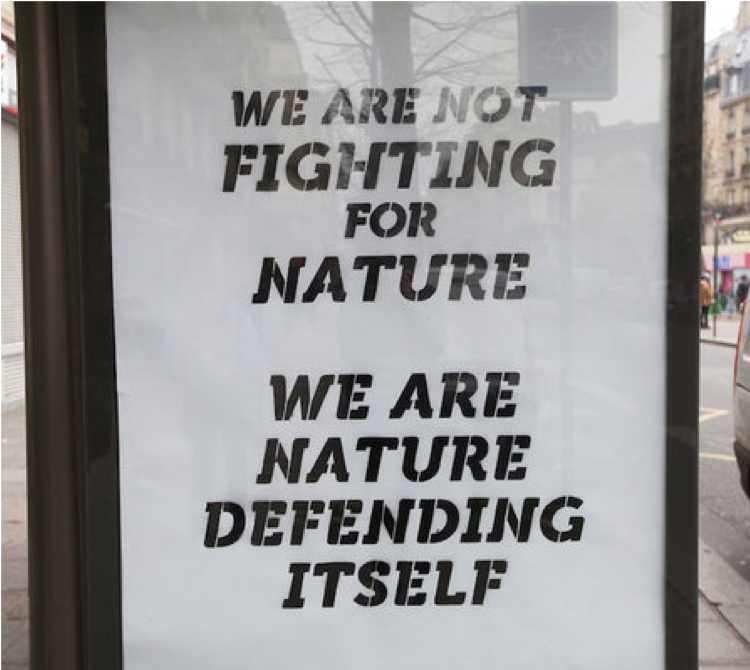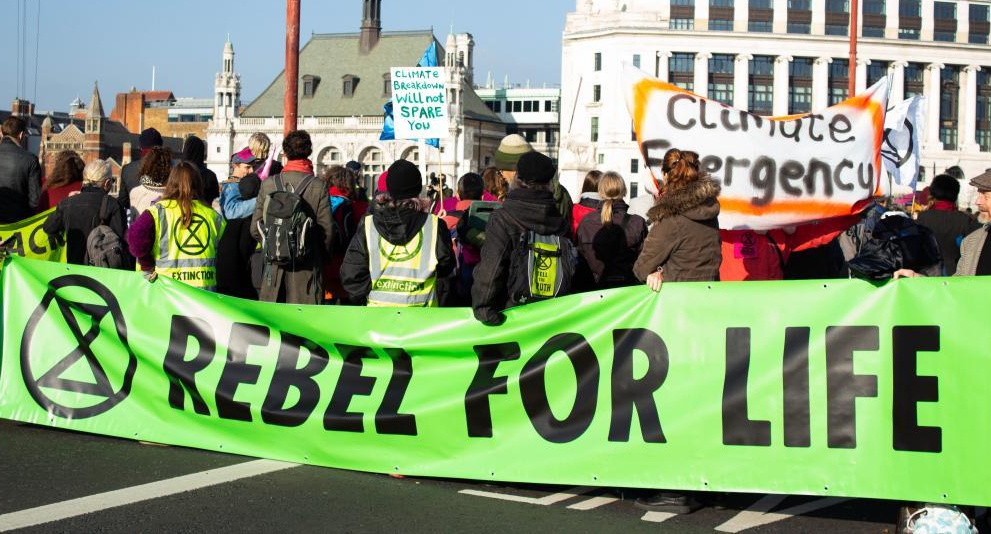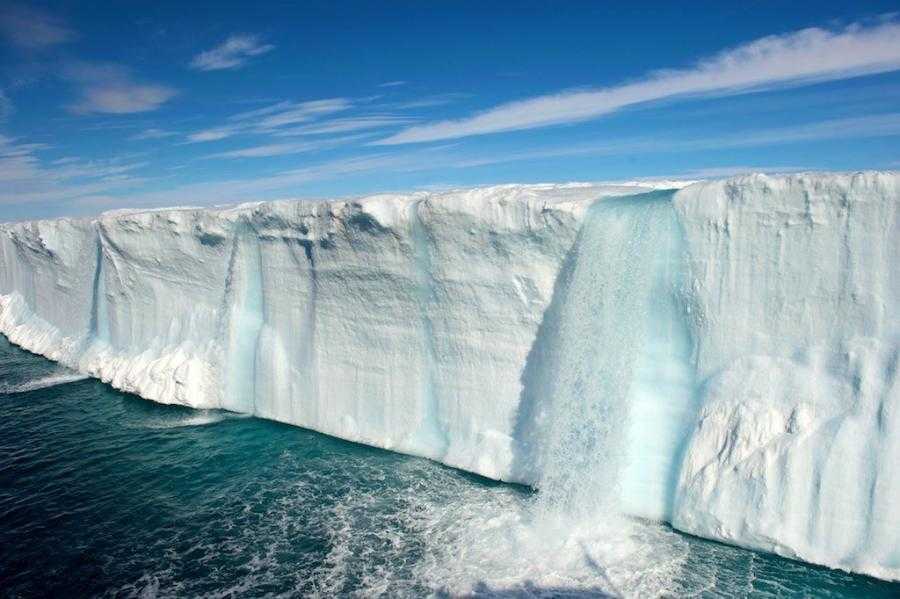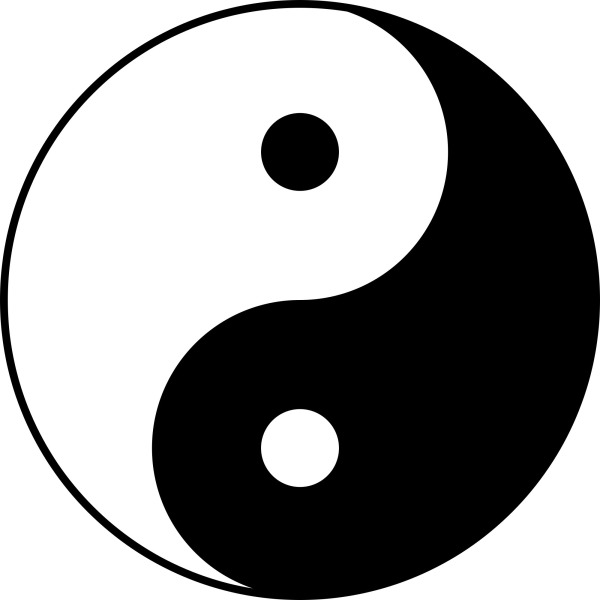On April 10, Jem Bendell wrote a detailed and thoughtful article in response to my critique of Deep Adaptation, “What Will You Say to Your Grandchildren.” I appreciate the care he took to ponder my arguments, note where he concurred, and refute what he felt was wrong. I believe that Jem and I agree on much more than we disagree, and that we share a similar heartbreak at the unfolding catastrophe our world is experiencing.
However, as I read Jem’s refutations, I was concerned that some deeper issues are at stake that need to be brought to the surface, and I’m writing this response accordingly. I hope our public dialogue has so far been of value to those who care passionately about what’s happening to our planet and civilization, and that this article continues to move the conversation forward in a constructive fashion.
Articles referred to in this piece:
What Will You Say to Your Grandchildren? by Jeremy Lent, April 4, 2019
Responding to Green Positivity Critiques of Deep Adaptation by Jem Bendell, April 10, 2019
Is collapse likely—or inevitable?
Jem implies that I may have “misrepresented the concept” of Deep Adaptation by failing to read his original article. On the contrary, when I became aware of his article, I was driven to read it thoroughly. I’ve spent years researching the topic of civilizational collapse, which I cover at length in the final chapter of The Patterning Instinct. Having read extensively on the topic, I felt I understood the issues reasonably well. (Bibliography below for anyone interested in researching it further.)
Collapse, in my view and in the view of many thinkers I respect, is a real near-term possibility, perhaps even likely, but not certain. For example, Paul and Anne Ehrlich, whose work I admire tremendously, wrote an article in 2013 entitled “Can a collapse of global civilization be avoided?” They concluded: “The answer is yes, because modern society has shown some capacity to deal with long-term threats. . . but the odds of avoiding collapse seem small.” Regardless of the odds, they aver, “our own ethical values compel us to think the benefits to those future generations are worth struggling for, to increase at least slightly the chances of avoiding a dissolution of today’s global civilization as we know it.”
Now, Jem was claiming to have discovered that collapse was, in fact, inevitable. I was keen to see what new information or methodology he’d uncovered that changed the picture so dramatically. But after carefully reading his paper, I didn’t find anything new of significance. What I noticed was that Jem kept slipping between the terms “inevitable” and “likely” in his analysis. He introduces his paper with the declaration that there will be an “inevitable near-term social collapse due to climate change . . . with serious ramifications for the lives of readers.” Then, about halfway through, he inserts the terms “probable” and “likely.” He opines that “the evidence before us suggests that we are set for disruptive and uncontrollable levels of climate change, bringing starvation, destruction, migration, disease and war.” “The evidence is mounting,” he goes on, “that the impacts will be catastrophic to our livelihoods and the societies that we live within.” On that basis, he declares: “Currently, I have chosen to interpret the information as indicating inevitable collapse, probable catastrophe and possible extinction.”
Quite honestly, I was disappointed by the lack of academic rigor in Jem’s arguments. I greatly appreciate that his article has galvanized many people who were previously numb to the climate crisis, but if I were a reviewer on his academic committee, I would also have rejected it for publication—not because of its “alarmist” character, but simply because it doesn’t adhere to academic standards by constantly jumping from factual evidence to personal opinion without clarifying the distinction.
I respect Jem’s right to interpret the data as he chooses. But what is there, beyond his gut feeling, that should persuade the rest of us that collapse is inevitable? There is, of course, no doubt that the climate news is terrifying and getting worse. However, much of the data is open to interpretation, even among leading experts in the field. As an example, Michael Mann, whose reputation as a climate scientist is virtually unsurpassed, and who has been the target of virulent attacks from climate-deniers, has criticized the predictions of David Wallace-Wells’s New York Magazine article that became the basis for Uninhabitable Earth, as follows:
The article paints an overly bleak picture by overstating some of the science. It exaggerates for example, the near-term threat of climate “feedbacks” involving the release of frozen methane (the science on this is much more nuanced and doesn’t support the notion of a game-changing, planet-melting methane bomb. It is unclear that much of this frozen methane can be readily mobilized by projected warming).
Also, I was struck by erroneous statements like this one referencing “satellite data showing the globe warming, since 1998, more than twice as fast as scientists had thought.” That’s just not true.
The evidence that climate change is a serious problem that we must contend with now, is overwhelming on its own. There is no need to overstate the evidence, particularly when it feeds a paralyzing narrative of doom and hopelessness.
He’s joined by a number of other highly reputable climate scientists making similar criticisms.
I’m not taking sides on this debate. I don’t feel qualified to do so (and I wonder how qualified Jem is?). I’m merely pointing out that the data is highly complex, and subject to good faith differences in interpretation, even among the experts.
Jem wrote in his response to my article that “to conclude collapse is inevitable is closer to my felt reality than to say it is likely.” If he chooses to go with his gut instinct and conclude collapse is inevitable, he has every right to do so, but I believe it’s irresponsible to package this as a scientifically valid conclusion, and thereby criticize those who interpret the data otherwise as being in denial.
The flap of a butterfly’s wings
This is more than just a pedantic point on whether the probability of collapse is actually 99% or 100%. An approach to our current situation based on a belief in inevitable collapse is fundamentally and qualitatively different from one that recognizes the inherent unpredictability of the future. And I would argue that a belief in the inevitability of collapse at this time is categorically wrong.
The reason for this is the nature of nonlinear complex systems. Jem repeatedly describes our climate as nonlinear in his paper, but seems to understand this as simply meaning a rising curve leading to accelerating climate change. Our Earth system, however, is an emergent process derived from innumerable interlinking subsystems, each of which is driven by different dynamics. As such, it is inherently chaotic, and not subject to deterministic forecasting. This is a major reason to be fearful of the reinforcing feedback loops that Jem points out in his paper, but it’s also a reason why even the most careful computer modeling is unable to forecast future changes with anything close to certainty.
When we try to prognosticate collapse, we’re not just relying on a long-term climate forecast, but also on the impact this will have on another nonlinear complex system—human society. In fact, as I describe in the Preface to The Patterning Instinct, human society itself is really two tightly interconnected, coexisting complex systems: a tangible system and a cognitive system. The tangible system refers to everything that can be seen and touched: a society’s technology, its physical infrastructure, and its agriculture, to name just some components. The cognitive system refers to what can’t be touched but exists in the culture: a society’s myths, core metaphors, hierarchy of values, and worldview. These coupled systems interact dynamically, creating their own feedback loops which can profoundly affect each other and, consequently, the direction of society.
The implications of this are crucial to the current debate. Sometimes, in history, the cognitive system has acted to inhibit change in the tangible system, leading to a long period of stability. At other times, the cognitive and tangible systems each catalyze change in the other, leading to a powerful positive feedback loop causing dramatic societal transformation. We are seeing this in today’s world. There is little doubt that we are currently in the midst of one of the great critical transitions of the human journey, and yet it is not at all clear where we will end up once our current system resolves into a newly stable state. Yes, it could be civilizational collapse. I’ve argued elsewhere that rising inequality could lead to a bifurcation of humanity that I call TechnoSplit, the moral implications of which are perhaps even more disturbing than full-blown collapse. And there’s a possibility that the cognitive system transforms into a newly dominant paradigm—an ecological worldview that recognizes the intrinsic interconnectedness of all forms of life on earth, and sees humanity as embedded integrally within the natural world.
There’s another crucial point arising from this understanding of complex systems: each of us plays a part in directing where that system is going. We’re not external observers but intrinsic to the system itself. That means that the choices each of us makes have a direct—and potentially nonlinear—impact on the future. It’s a relay race against time in which every one of us is part of the team. It’s because of this dynamic that I feel it’s so important to counter Jem’s Deep Adaptation narrative. Each one of us can make a difference. We can’t know in advance how our actions will ripple out into the world. As the founder of chaos theory, Edward Lorenz, famously asked: “Does the flap of a butterfly’s wings in Brazil set off a tornado in Texas?” His point was not that it will set off a tornado, but that if it did, it could never be predicted. Will your choice about how you’re going to respond to our current daunting crisis be that butterfly’s wing? None of us can ever know the answer to that.
Deep Transformation means transforming the basis of our civilization
As I pointed out in my article, I agree with Jem wholeheartedly that incremental fixes are utterly insufficient. We need a fundamental transformation of society encompassing virtually every aspect of the human experience: our values, our goals and our collective behavior. The meaning we derive from our existence must arise from our connectedness if we are to succeed in sustaining civilization: connectedness within ourselves, to other humans, and to the entire natural world.
Climate change, disastrous as it is, is just one symptom of a larger ecological breakdown. Just like a patient with a life-threatening disease exhibiting a dangerously high temperature, the symptoms need to be addressed as an emergency, but for long-term health, the underlying disease must be treated. As I describe in The Patterning Instinct—and I understand Jem agrees with me here—the underlying disease in this case is one of separation: separation of mind from body, separation from each other, and separation from nature. It’s our view of humans as essentially disconnected, begun in agrarian civilizations, exacerbated with the Scientific Revolution, and institutionalized by global capitalism, that has set us on this current path either to collapse or TechnoSplit.
I therefore share with Jem the view that those who argue incremental change can save us are deluding themselves. In my view, even if an assortment of economic and technical fixes were, by a miracle, to reduce atmospheric carbon rapidly enough to avert the worst feedback effects, this wouldn’t be sufficient to avert disaster. We need to transform our core human identity, to rediscover the truth behind the slogan plastered on the streets in Paris during COP21: “We are not fighting for nature. We are nature defending itself.”

In fact, I join Jem in recognizing that, since our current civilization has caused this calamity, perhaps we should “give up on it.” However, the way in which we leave this civilization behind, and what it’s replaced by, are all-important. An uncontrolled collapse of this civilization would be catastrophic, leading to mega-deaths, along with the greatest suffering ever experienced in human history. I’m sure Jem agrees with me that we must consider anything in our power to try to avoid this cataclysm.
I believe the only real path toward future flourishing is one that transforms the basis of our civilization, from the current one that is extractive and wealth-based, to one that is life-affirming, based on the core principles that sustain living systems coexisting stably in natural ecologies. Some of us call this an Ecological Civilization. Jem disparages this vision as a “fairytale.” In fact, as I detail elsewhere, innumerable pioneering organizations around the world are already planting the seeds for this cultural metamorphosis. From buen vivir in South America, to Mondragon in Spain, to the Earth Charter initiative, brave visionaries are living into the future we all want to see.
We don’t know how successful we will be, but let’s give it our best shot. When Thomas Paine wrote The Rights of Man in 1792, he was tried and convicted in absentia by the British for seditious libel. His ideas were also dismissed as a fairy tale. In fact, he and other visionaries of his generation spent their last years believing they had failed. They had no way of knowing that, a hundred and fifty years later, the UN’s Universal Declaration of Human Rights would recognize fundamental human rights as deserving worldwide legal protection. Granted, we don’t have a hundred and fifty years to transform our civilization. But in an age where cultural memes spread virally around the world in hours, I don’t think we should give up on the possibility.
Our profound moral obligation
Jem’s program of Deep Adaptation is based partially on the notion that despair, rather than hope, is the most effective vehicle for transformation. “It turns out,” he writes, ‘that despair can be transformative” by enabling a person to “drop past stories of what is sensible or not.” Ultimately, as he tells it, a call for hope might make people “feel better for a while,” but they will reach a point where “they can’t avoid despair anymore,” at which point they should “let it arise and ultimately transform their identity.”
From personal experience, I feel what Jem is describing. There have been times when I have found myself sobbing uncontrollably with seemingly limitless grief at the enormity of our civilization’s vast ongoing crime of ecocide. I recognize only too well how a false hope that, “somehow things will be better if we can only improve our technology, recycle more, or go vegan,” can cause continual suffering, emotional paralysis, and political incrementalism. We need to open our hearts to the agony of the truth that we’re facing—to the loss of our living earth, to the devastation already being wrought on millions of climate refugees around the world. When we do that, we need spiritual sustenance. We need compassionate community support. Each of us needs to find our way through the quagmire of despair.
Jem—I’m with you on that. I appreciate how your narrative has touched a nerve in so many people, and how you’re devoting your time to building support structures for the grieving that is part of our new reality. But I don’t think it ends there. I believe that hope has a crucial role in healing, and in driving our engagement in effecting the deep transformation we need. When you write that “All hope is a story of the future rather than attention to the present,” I believe you’re showing a profound misunderstanding of what hope really is.
Hope is not a story of the future, it’s a state of mind. In Vaclav Havel’s famous words, it’s not the belief that things will go well; it “is a deep orientation of the human soul that can be held at the darkest times.” And hope can propel us from that deep place to active engagement. As Emily Johnston—one of the courageous valve-turners who faced prison for shutting down tar sands pipelines—has written: “Our job is not to feel hope—that’s optional. Our job is to be hope, and to make space for the chance of a different future.”
For you, Jem, and those that follow your program of Deep Adaptation, I wish only the best, and I empathize with your embrace of despair. If that is the path that feels most meaningful to you, and leads you to your most effective work, go for it. However, I plead with you not to disparage those who are driven by hope, and working to transform our current destructive civilization. I urge you not to keep repeating that collapse is inevitable; that your approach is the only one that’s realistic; and that other people working toward a positive vision are merely in denial. Instead, please recognize that you really don’t know the future course of our world; that despair at the inevitability of collapse is a gut feeling you experience, but is not based on scientific fact. As a wise man once told me: “Believe your feelings; don’t necessarily believe the stories that arise from them.”
Let’s focus on what we know to be true. Let’s engage generatively to transform what we know to be wrong. Species are disappearing. Millions of people are being uprooted. Those of us in a position of privilege and power are part of the system that is causing this global devastation. We have a profound moral obligation to step up and rebel against the structures that are causing this harm. Whether you come from despair or hope, whether you believe collapse is inevitable or that a flourishing future is possible, join together with your sisters and brothers around you, find ways in which you can alleviate their suffering and energize their potential—and recognize that our collective actions are ultimately what will create the future.
NOTE: This article has been edited and updated, based on correspondence between Jem Bendell and Jeremy Lent in February 2020, which established important points of concurrence between our two perspectives that the original article had not identified.
In the interest of transparency, the original article can be read here in pdf format.
Selected bibliography on civilizational collapse
Recommended Books
Joseph A. Tainter, The Collapse of Complex Societies (Cambridge: Cambridge University Press, 1988).
Thomas Homer-Dixon, The Upside of Down: Catastrophe, Creativity, and the Renewal of Civilization (Washington, DC: Island Press, 2008).
Jared Diamond, Collapse: How Societies Choose to Fail or Survive (New York: Penguin Books, 2005).
Donella Meadows, Jorgen Randers, and Dennis Meadows, Limits to Growth: The 30-Year Update (White River Junction, VT: Chelsea Green, 2004).
Marten Scheffer, Critical Transitions in Nature and Society (Princeton: Princeton University Press, 2009).
Jorgen Randers, 2052: A Global Forecast for the Next Forty Years (White River Junction, VT: Chelsea Green, 2012).
Paul Raskin, et al., Great Transition: The Promise and Lure of the Times Ahead (Boston: Stockholm Environment Institute, 2003).
Recommended Articles
Paul R. Ehrlich, and Anne H. Ehrlich, “Can a Collapse of Global Civilization Be Avoided?”, Proceedings of the Royal Society B: Biological Sciences 280, no. 1754 (2013).
Safa Motesharrei, et al., “Modeling Sustainability: Population, Inequality, Consumption, and Bidirectional Coupling of the Earth and Human Systems,” National Science Review 3 (2016): 470–94.
Graeme S. Cumming, and Garry D. Peterson, “Unifying Research on Social–Ecological Resilience and Collapse,” Trends in Ecology & Evolution 32, no. 9 (2017): 695–713.
Marten Scheffer, et al., “Early-Warning Signals for Critical Transitions,” Nature 461 (2009): 53–59.
Marten Scheffer, “Anticipating Societal Collapse; Hints from the Stone Age,” PNAS 113, no. 39 (2016): 10733–35.
Richard C Duncan. “The Life-Expectancy of Industrial Civilization.” Paper presented at the Proceedings of the 1991 International System Dynamics Conference, 1991.
Ugo Bardi. “The Punctuated Collapse of the Roman Empire.” In Cassandra’s Legacy. Florence, 2013.
Karl W. Butzer, “Collapse, Environment, and Society,” PNAS 109, no. 10 (2012): 3632–39.
Jeffrey C. Nekola, et al., “The Malthusian–Darwinian Dynamic and the Trajectory of Civilization,” Trends in Ecology & Evolution 28, no. 3 (2013): 127–30
Joseph Wayne Smith, and Gary Sauer-Thompson, “Civilization’s Wake: Ecology, Economics, and the Roots of Environmental Destruction and Neglect,” Population and Environment 19, no. 6 (1998): 541–75.
Joseph A. Tainter, “Resources and Cultural Complexity: Implications for Sustainability,” Critical Reviews in Plant Sciences 30, no. 1–2 (2011): 24–34
Graham M. Turner, “A Comparison of the Limits to Growth with 30 Years of Reality,” Global Environmental Change 18 (2008): 397–411.
Jeremy Lent is author of The Patterning Instinct: A Cultural History of Humanity’s Search for Meaning, which investigates how different cultures have made sense of the universe and how their underlying values have changed the course of history. He is founder of the nonprofit Liology Institute, dedicated to fostering a sustainable worldview. For more information visit jeremylent.com.








